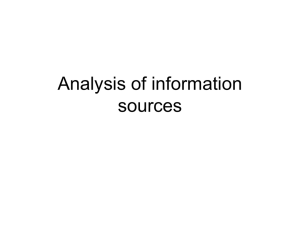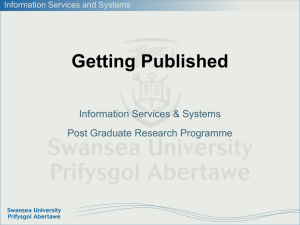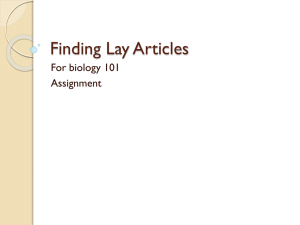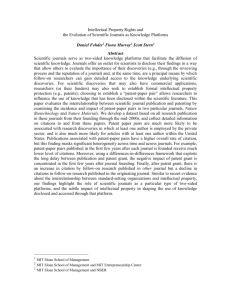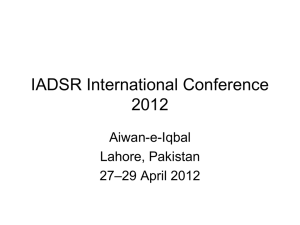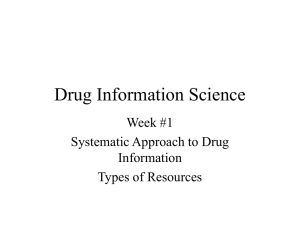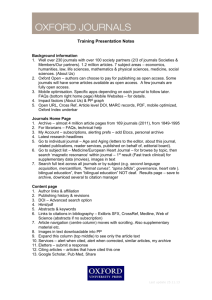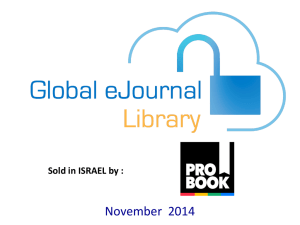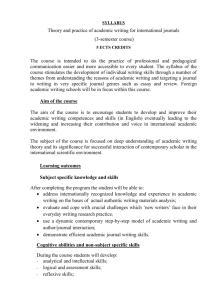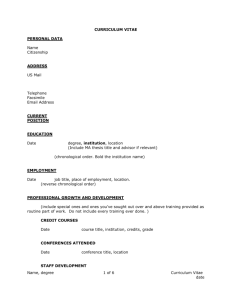Judgment Criterion
advertisement
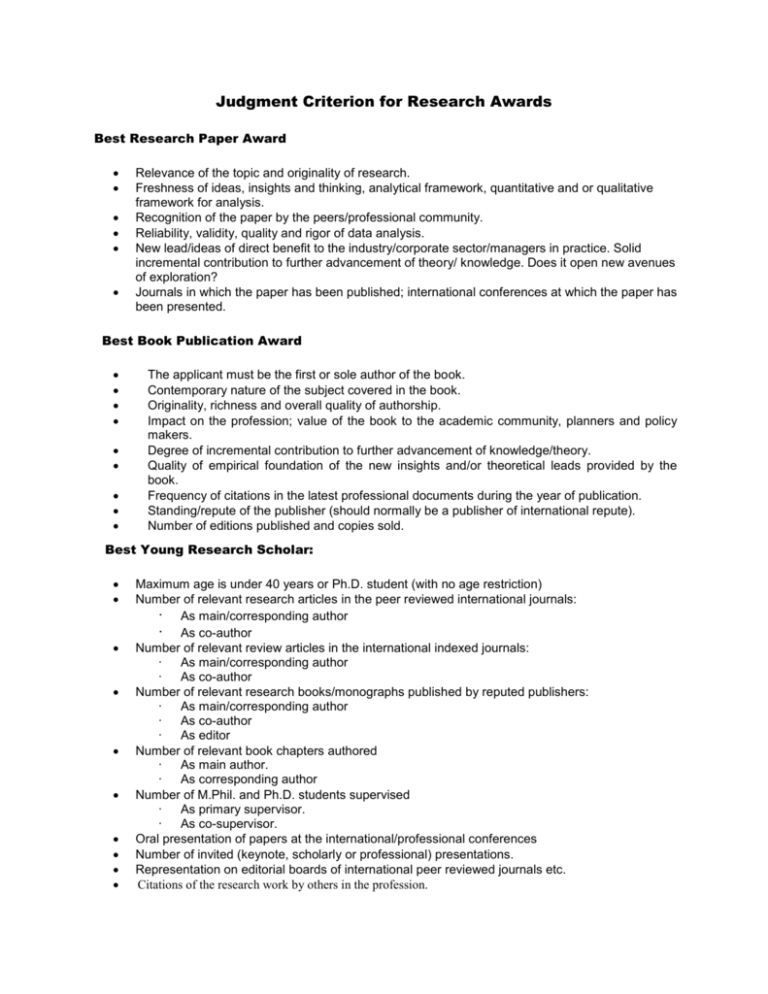
Judgment Criterion for Research Awards Best Research Paper Award Relevance of the topic and originality of research. Freshness of ideas, insights and thinking, analytical framework, quantitative and or qualitative framework for analysis. Recognition of the paper by the peers/professional community. Reliability, validity, quality and rigor of data analysis. New lead/ideas of direct benefit to the industry/corporate sector/managers in practice. Solid incremental contribution to further advancement of theory/ knowledge. Does it open new avenues of exploration? Journals in which the paper has been published; international conferences at which the paper has been presented. Best Book Publication Award The applicant must be the first or sole author of the book. Contemporary nature of the subject covered in the book. Originality, richness and overall quality of authorship. Impact on the profession; value of the book to the academic community, planners and policy makers. Degree of incremental contribution to further advancement of knowledge/theory. Quality of empirical foundation of the new insights and/or theoretical leads provided by the book. Frequency of citations in the latest professional documents during the year of publication. Standing/repute of the publisher (should normally be a publisher of international repute). Number of editions published and copies sold. Best Young Research Scholar: Maximum age is under 40 years or Ph.D. student (with no age restriction) Number of relevant research articles in the peer reviewed international journals: · As main/corresponding author · As co-author Number of relevant review articles in the international indexed journals: · As main/corresponding author · As co-author Number of relevant research books/monographs published by reputed publishers: · As main/corresponding author · As co-author · As editor Number of relevant book chapters authored · As main author. · As corresponding author Number of M.Phil. and Ph.D. students supervised · As primary supervisor. · As co-supervisor. Oral presentation of papers at the international/professional conferences Number of invited (keynote, scholarly or professional) presentations. Representation on editorial boards of international peer reviewed journals etc. Citations of the research work by others in the profession. Research grants obtained. Academic achievements, awards and honors received. Overall contribution to the field of the research, economy, society etc. Best Innovator: Novelty: Is the technology, method, or application new? Does it enable novel research, offer new treatment possibilities to patients, or uniquely solve a marketing problem? Originality: The freshness of aspect, design or style utilized to produce the invention. Intellectual Achievement: The degree of intellectual achievement or quality of ingenious thinking and experiment to discover, create or conceive the innovation. Feasibility: Will the idea, device, or technology work? Has it been demonstrated in the lab, or even beyond? Development: The extent to which the idea or concept has been thought through to completion. Commercialization: Potential for successful commercialization and marketing of the innovation (must provide a business plan or market research data). Impact: How big a deal is it? How much potential does the innovation have to improve economy, accelerate discovery, or create new markets? Special consideration will be given to: - Awarded international patents or patent filings - Novel product proposals accompanied by a business plan or profitability reports Lifetime Academic Achievement Minimum age is 50 years. Years of noteworthy experience as academician Consistency in achievements Number of relevant research articles in the peer reviewed international journals: As main author As corresponding author Number of relevant books/monographs published: As main author. As corresponding author As editor Number of relevant book chapters authored As main author. As corresponding author Number of patents awarded International patents National patents Number of M.Phil. and Ph.D. students supervised As primary supervisor. As co-supervisor. Oral presentation of papers at the international/professional conferences (poster presentations, or presentations by proxy will not be considered). Number of invited (keynote, scholarly or professional) presentations. Representation on editorial boards of international peer reviewed journals etc. Citations of the research work by others in the profession. Research grants obtained.
